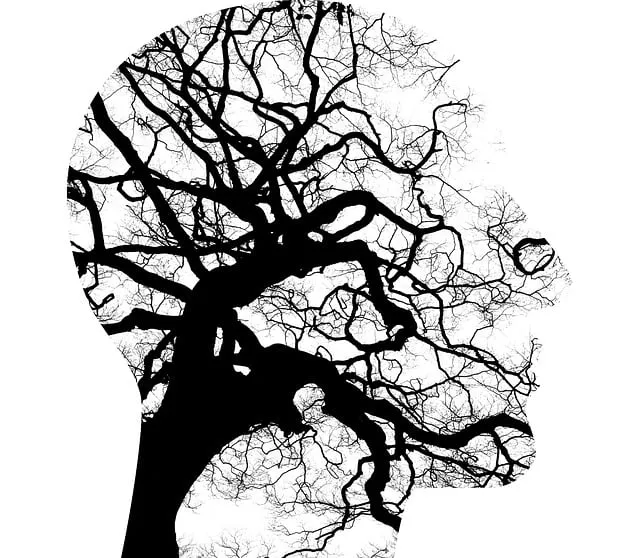Lakewood and Kaiser, as prominent healthcare institutions, must address cultural sensitivity gaps in their mental health services. By recognizing diverse patient backgrounds, they can tailor therapy techniques, communication, and environments to suit individual needs, improving engagement and outcomes. Integrating cultural awareness allows for personalized care, builds trust, and enhances the effectiveness of interventions. Key strategies include hiring diverse therapists, partnering with local cultural leaders, and incorporating traditional healing practices into therapy to offer holistic support that respects patients' identities.
Cultural sensitivity is an essential aspect of providing quality mental healthcare, especially within diverse communities. This article explores the concept of cultural sensitivity in mental healthcare practice, highlighting its significance and the challenges faced by professionals. We delve into specific gaps in culturally competent care, particularly focusing on the services offered by Kaiser in Lakewood. By presenting strategies to enhance cultural sensitivity, we aim to improve access and outcomes for all patients, ensuring that mental health support is inclusive and effective.
- Understanding Cultural Sensitivity in Mental Healthcare
- Challenges and Gaps in Culturally Competent Practice
- Strategies for Incorporating Cultural Sensitivity in Lakewood and Beyond (with a focus on Kaiser's mental health services)
Understanding Cultural Sensitivity in Mental Healthcare

In the realm of mental healthcare, cultural sensitivity is a crucial aspect that Lakewood and Kaiser facilities, among others, must master to effectively serve diverse patient populations. Understanding Cultural Sensitivity in Mental Healthcare involves recognizing and appreciating the unique cultural backgrounds, values, and beliefs of individuals seeking treatment. This means adapting practices to meet the specific needs of various ethnic, racial, religious, and socio-economic groups, ensuring inclusive care that respects and validates their experiences. For instance, a patient’s coping skills development or depression prevention journey can significantly benefit from cultural sensitivity, as certain traditions and practices may offer alternative approaches to healing and well-being.
When exploring Cultural Sensitivity in Mental Healthcare Practice, it’s essential to consider how these factors influence communication, therapy techniques, and the overall therapeutic environment. For example, some cultures may prefer a more collective approach to mental health, involving family members in treatment decisions, while others prioritize individualism. By integrating cultural awareness into their services, Lakewood and Kaiser can offer personalized care, fostering better engagement and outcomes for patients. This sensitivity enables healthcare providers to build trust, enhance patient-provider relationships, and ultimately improve the effectiveness of mental health interventions, addressing not just symptoms but also the unique cultural contexts in which patients live and cope.
Challenges and Gaps in Culturally Competent Practice

Navigating the landscape of mental healthcare often reveals challenging gaps in culturally competent practice, especially when considering diverse populations like those served by Lakewood and Kaiser facilities. The question arises: do these institutions, renowned for their services, adequately address the mental wellness needs of various cultural backgrounds? Despite efforts to enhance accessibility, many barriers persist.
One significant challenge is the lack of tailored trauma support services that recognize and respect cultural differences. Every community carries its unique historical and social baggage, which can influence how individuals perceive and express mental health issues. Without culturally sensitive approaches, traditional therapeutic methods may inadvertently perpetuate existing disparities, making it crucial for healthcare providers to embrace a diverse perspective. For instance, Lakewood and Kaiser could further integrate cultural sensitivity training into their practices to ensure staff are equipped to offer personalized care that goes beyond generic solutions.
Strategies for Incorporating Cultural Sensitivity in Lakewood and Beyond (with a focus on Kaiser's mental health services)

Incorporating cultural sensitivity into mental healthcare practices is essential for providing effective support to diverse patient populations, including those in Lakewood and surrounding areas. Kaiser, a prominent healthcare provider, offers mental health services that can greatly benefit from these strategies. One key approach is to embrace diversity within the treatment team. Hiring therapists and counselors from various ethnic and cultural backgrounds ensures patients see themselves reflected in their caregivers. This fosters trust and creates a safe space for individuals to share unique perspectives on their experiences, enhancing the emotional healing processes.
Additionally, Kaiser can implement community-oriented programs that engage local cultural leaders and organizations. These partnerships can facilitate access to services and promote awareness about mental health issues within specific communities. By incorporating cultural norms and practices into therapy, such as traditional healing rituals or resilience-building activities tailored to diverse backgrounds, Kaiser’s mental health services in Lakewood can offer more holistic support. This approach not only respects patients’ identities but also enhances their ability to find anxiety relief through culturally informed care.
Cultural sensitivity is an indispensable aspect of quality mental healthcare, as it ensures inclusive and effective treatment for individuals from diverse backgrounds. As Lakewood residents and beyond look to organizations like Kaiser for mental health services, the integration of culturally competent practices becomes paramount. By addressing challenges and implementing strategies that embrace cultural sensitivity, Kaiser can enhance its care delivery, fostering a more supportive environment for all clients. This approach not only aligns with best practices but also promises to transform lives by bridging the gap between healthcare and cultural understanding.






